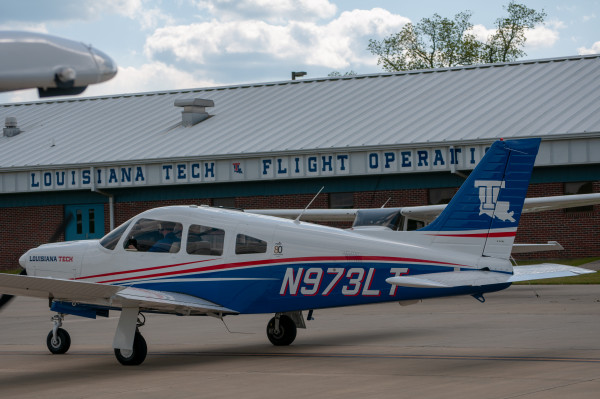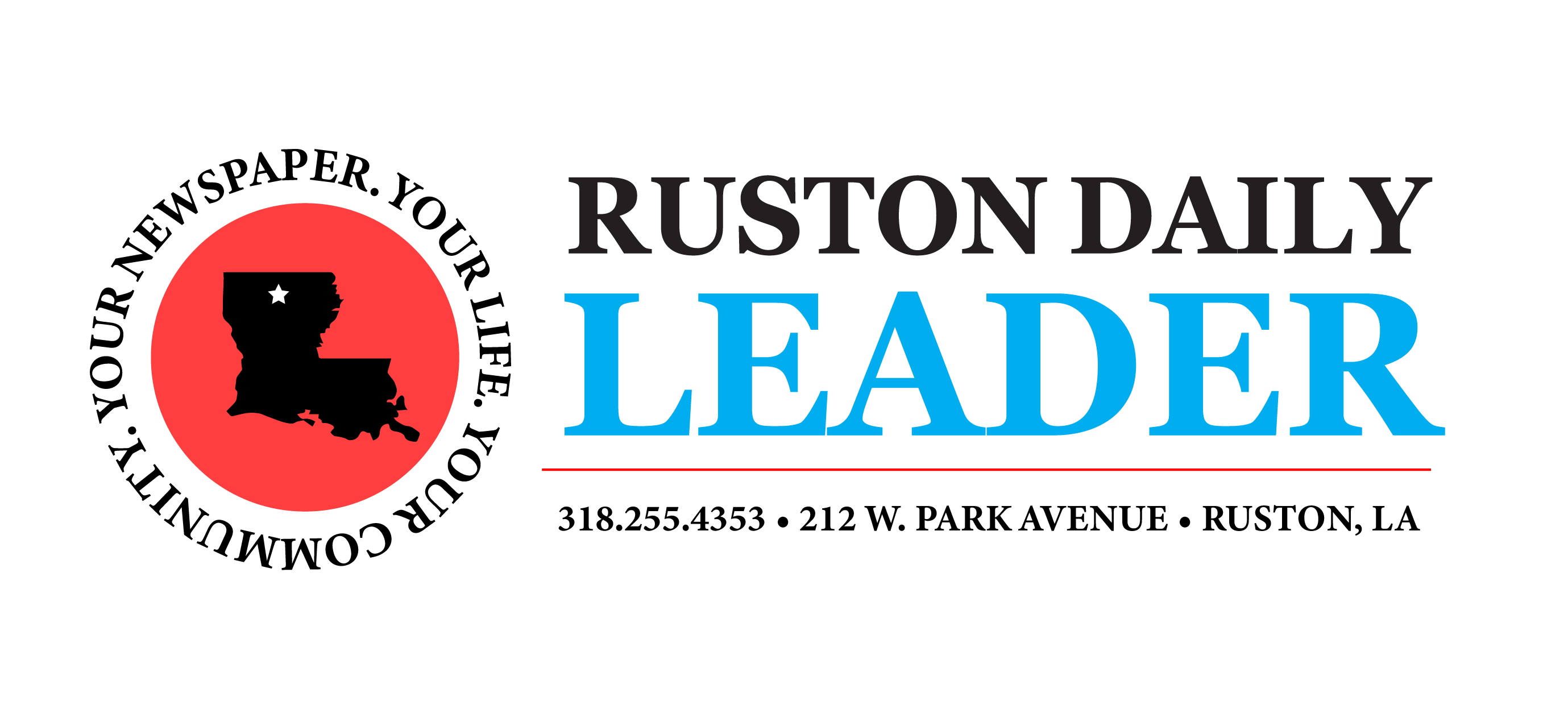Tech aviation department remains optimistic during airline crisis

Courtesy photo
Pictured is one of the Louisiana Tech aviation department planes at Ruston Regional Airport.
The COVID-19 pandemic has put a lot of strain on many industries over the past couple of months, but few have been hit as hard as the airline industry.
Air travel in the United States has fallen 93%, and four American, along with nine international, airlines have either restructured or ceased operations entirely since the beginning of the pandemic.
Louisiana Tech University has one of the more well-known aviation programs in the country. In fall 2019, approximately 180 students were enrolled in the department. Col. Tom Garza, head of the Tech aviation department, made the decision to suspend flight operations on March 19, 10 days after the first presumptive case of coronavirus in Louisiana was reported. Gov. John Bel Edwards issued the first stay-at-home order on March 22.
With air travel significantly reduced, airlines have had to decrease cash flow quickly and have resorted to self-help actions.
On May 3, United Airlines said they would eliminate one-third of its 12,250 pilots as soon as Oct. 1. It went on to say that if travel does not rebound, more pilots would be cut along with mechanics, flight attendants, ground workers and staff.
Garza is aware of the uncertainty but is confident his students will still prosper.
“Our students are bright, enthusiastic and love what they do,” Garza said. “We all have an understanding that this is a cyclical business. Nevertheless, we are confident in the mid-to long-term prospects of the aviation industry.”
He said that in late April, the assistant chief flight instructor for the department began the Euro-NATO Joint Jet Pilot Training Program and his predecessor is now a U.S. Air Force Instructor pilot. Garza also said that three aviation management spring graduates recently completed successful internships during the pandemic and many of those internships often lead to good jobs.
The total debt of United States carriers is projected to increase 45% from the end of 2019 to the end of 2020 according to Airlines for America. Passenger volumes took three years to recover from 9/11 and more than seven years to recover from the financial crisis and oil spike in 2008. Cargo volumes took 10 years to recover from the event.
In April, the Trump administration reached an agreement with major airlines on the terms of a $25 billion bailout. The Treasury department went on to say that 10 different airlines would participate in the program and that 70% of the money given to an airline will be in the form of a grant, while the other 30% will be a loan.
Despite the looming concerns, Garza and the Tech aviation department started the process of resuming flight operations on May 18.
“We will start with flight instructor currency and proficiency flights before we gradually start bringing students back on (Monday),” Garza said.
A three-to-four-week phasing period will begin with first priority given to students nearest to graduation.
“Not all of our students will return at once so that we are able to maintain our students’ academic progress while ensuring their safety and health,” Garza said. “The health and safety of our students, faculty and staff while providing for student progress is our top priority.”
The university has also remained optimistic during this period and is offering a variety of resources to its students, including counseling and career support, as well as academic advising to ensure students continue to make positive progress toward their academic goals.
“In professional aviation, we are a close family within the larger Tech family,” Garza said. “Like families everywhere, we will take care of each other and get through this time together.”

